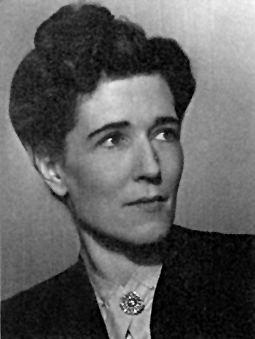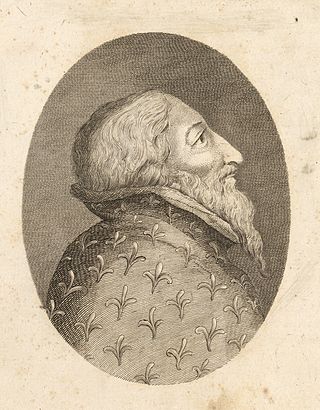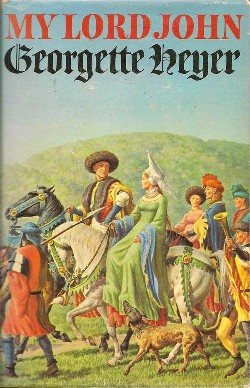Related Research Articles

Henry VI was King of England from 1422 to 1461 and again from 1470 to 1471, and disputed King of France from 1422 to 1453. The only child of Henry V, he succeeded to the English throne upon his father's death at the age of eight months; he succeeded to the French throne on the death of his maternal grandfather, Charles VI, shortly afterwards.

The Life and Death of King Richard the Second, often shortened to Richard II, is a history play by William Shakespeare believed to have been written around 1595. Based on the life of King Richard II of England, it chronicles his downfall and the machinations of his nobles. It is the first part of a tetralogy, referred to by some scholars as the Henriad, followed by three plays about Richard's successors: Henry IV, Part 1; Henry IV, Part 2; and Henry V.

Georgette Heyer was an English novelist and short-story writer, in both the Regency romance and detective fiction genres. Her writing career began in 1921, when she turned a story conceived for her ailing younger brother into the novel The Black Moth. In 1925 Heyer married George Ronald Rougier, a mining engineer. The couple spent several years living in Tanganyika Territory and Macedonia before returning to England in 1929. After her novel These Old Shades became popular despite its release during the General Strike, Heyer determined that publicity was not necessary for good sales. For the rest of her life she refused to grant interviews, telling a friend: "My private life concerns no one but myself and my family."

Henry IV, Part 1 is a history play by William Shakespeare, believed to have been written not later than 1597. The play dramatises part of the reign of King Henry IV of England, beginning with the battle at Homildon Hill late in 1402, and ending with King Henry's victory in the Battle of Shrewsbury in mid-1403. In parallel to the political conflict between King Henry and a rebellious faction of nobles, the play depicts the escapades of King Henry's son, Prince Hal, and his eventual return to court and favour.

Henry Percy, 1st Earl of Northumberland, 4th Baron Percy, titular King of Mann, KG, Lord Marshal was the son of Henry de Percy, 3rd Baron Percy, and a descendant of Henry III of England. His mother was Mary of Lancaster, daughter of Henry, 3rd Earl of Lancaster, son of Edmund, Earl of Leicester and Lancaster, who was the son of Henry III.

Henry IV, Part 2 is a history play by William Shakespeare believed to have been written between 1596 and 1599. It is the third part of a tetralogy, preceded by Richard II and Henry IV, Part 1 and succeeded by Henry V.

The Black Moth (1921) is a Georgian era romance novel by the British author Georgette Heyer, set around 1751. The Black Moth was Heyer's debut novel, published when Heyer was nineteen. It was a commercial success.

My Lord John is an unfinished historical fiction novel by the British author Georgette Heyer, published posthumously in 1975 after her death the previous year. It traces the early lives of the "young lordings" – Harry, Thomas, John, and Humfrey – all sons of the future Lancastrian king Henry IV of England. They grow up amidst turbulent events including the 1394 pestilence, the exile of their father by Richard II, the death of their powerful grandfather John of Gaunt, and the seizure of the throne by their father. John of Lancaster serves as the novel's main character.

Richard III of England has been depicted in literature and popular culture many times. In the Tudor period he was invariably portrayed as a villain, most famously in Shakespeare's play Richard III, but also in other literature of the period. Richard's life was not much depicted again until the 20th century when the "Ricardian" movement sought to restore his reputation. Much of more recent creative literature has portrayed him in a positive light. However his reputation as a hunchbacked villain has remained a familiar historical cliché within popular culture.

Henry VII of England has been depicted a number of times in popular culture.

John of England has been portrayed many times in fiction, generally reflecting the overwhelmingly negative view of his reputation.

Richard II of England has been depicted in popular culture a number of times.
Edward IV of England has been depicted in popular culture a number of times.
Henry V of England has been depicted in popular culture a number of times.

The Wars of the Roses was a 1963 theatrical adaptation of William Shakespeare's first historical tetralogy, which deals with the conflict between the House of Lancaster and the House of York over the throne of England, a conflict known as the Wars of the Roses. The plays were adapted by John Barton, and directed by Barton and Peter Hall at the Royal Shakespeare Theatre. The production starred David Warner as Henry VI, Peggy Ashcroft as Margaret of Anjou, Donald Sinden as the Duke of York, Paul Hardwick as the Duke of Gloucester, Janet Suzman as Joan la Pucelle, Brewster Mason as the Earl of Warwick, Roy Dotrice as Edward IV, Susan Engel as Queen Elizabeth and Ian Holm as Richard III.
The Hollow Crown is a series of British television film adaptations of William Shakespeare's history plays.
"Henry IV, Part I" and "Henry IV, Part II" are the second and third episodes of the first series of the British television series The Hollow Crown, based on the second set of plays in William Shakespeare's Henriad. The episodes were produced by Sam Mendes, directed and adapted by Richard Eyre and starred Jeremy Irons as King Henry IV, Simon Russell Beale as Falstaff and Tom Hiddleston as Prince Hal. Much of the cast and crew of both episodes overlap and the plot flows directly from the first to the second. The episodes were first broadcast on 7 July and 14 July 2012 on BBC Two.
"Henry VI, Part 2" is second episode of the second series of the British television series The Hollow Crown, based on the plays Henry VI, Part 2 and Henry VI, Part 3 by William Shakespeare. It was directed by Dominic Cooke, who also adapted the screenplay with Ben Power. It starred Tom Sturridge as Henry VI, Sophie Okonedo as Queen Margaret and Benedict Cumberbatch as Richard. The adaptation presents Henry VI in two parts, incorporating all three Henry VI plays. It was first broadcast on 14 May 2016 on BBC Two.
References
- ↑ McGarry, Daniel D., White, Sarah Harriman, Historical Fiction Guide: Annotated Chronological, Geographical, and Topical List of Five Thousand Selected Historical Novels. Scarecrow Press, New York, 1963 (pg. 79)
- ↑ A Bloody Field by Shrewsbury, Publishers Weekly . Retrieved 3 March 2020.
- ↑ Hicks, Granville (February 27, 1972). "Fortune Made His Sword" (PDF). The New York Times Book Review. Retrieved February 11, 2013.
- ↑ Toomey, Philippa (October 1975). "Fiction". In Fahnestock-Thomas, Mary (ed.). Georgette Heyer: A Critical Retrospective. Prinnyworld Press (published 2001). pp. 240–241. ISBN 978-0-9668005-3-1.
- ↑ Stephenson, Geneva (November 1975). "Last Heyer Novel, A Period Panorama". In Fahnestock-Thomas, Mary (ed.). Georgette Heyer: A Critical Retrospective. Prinnyworld Press (published 2001). pp. 242–243. ISBN 978-0-9668005-3-1.
- ↑ "Henry dethrones William and George as most popular baby name for Telegraph readers" . Retrieved 2015-06-05.